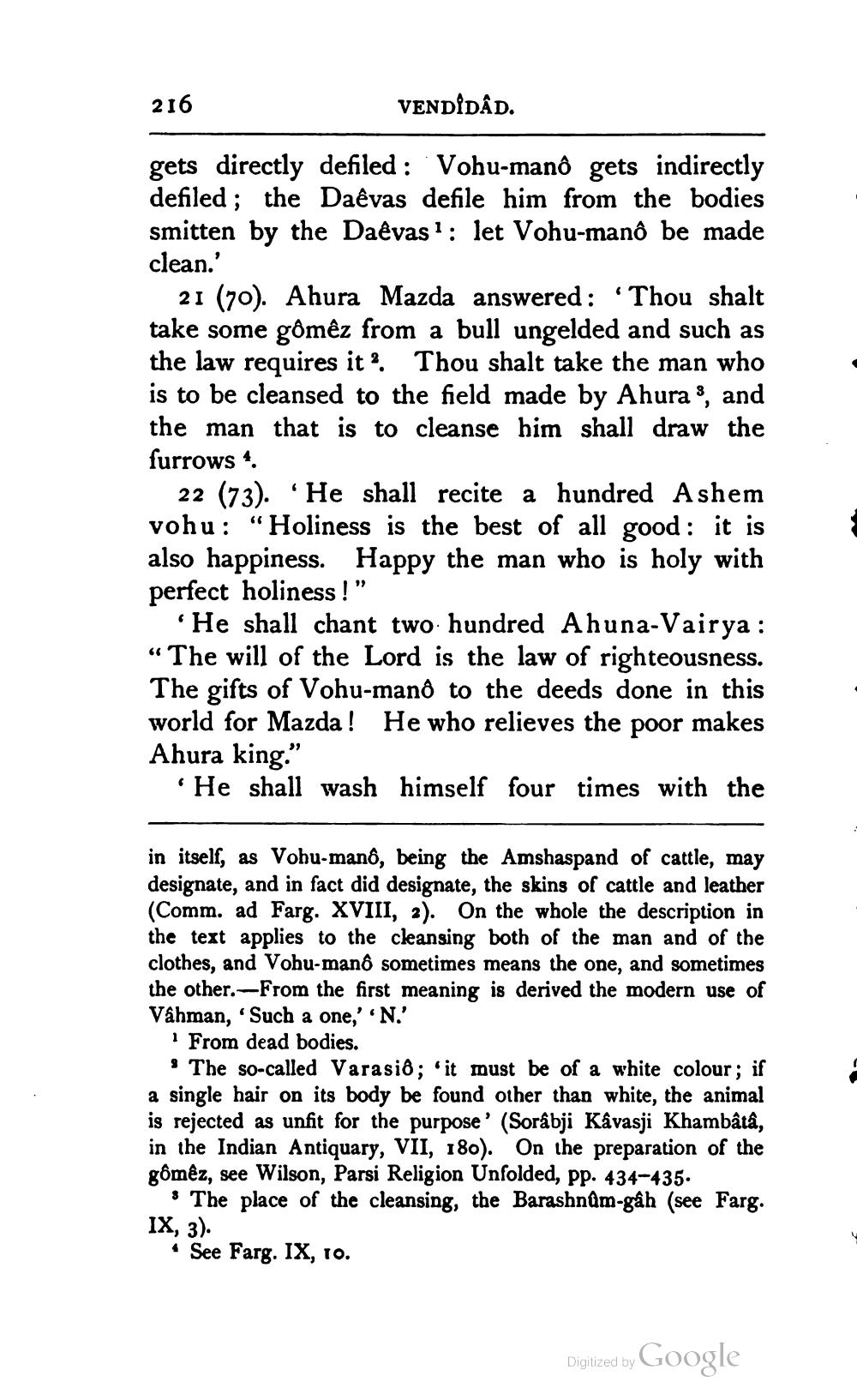________________
216
VENDIDÂD.
gets directly defiled : Vohu-manô gets indirectly defiled; the Daêvas defile him from the bodies smitten by the Daevas!: let Vohu-manô be made clean.'
21 (70). Ahura Mazda answered: “Thou shalt take some gômêz from a bull ungelded and such as the law requires it. Thou shalt take the man who is to be cleansed to the field made by Ahuras, and the man that is to cleanse him shall draw the furrows 4.
22 (73). 'He shall recite a hundred Ashem vohu: “Holiness is the best of all good: it is also happiness. Happy the man who is holy with perfect holiness!"
He shall chant two hundred Ahuna-Vairya : “The will of the Lord is the law of righteousness. The gifts of Vohu-mano to the deeds done in this world for Mazda! He who relieves the poor makes Ahura king."
He shall wash himself four times with the
in itself, as Vohu-mano, being the Amshaspand of cattle, may designate, and in fact did designate, the skins of cattle and leather (Comm. ad Farg. XVIII, 2). On the whole the description in the text applies to the cleansing both of the man and of the clothes, and Vohu-manô sometimes means the one, and sometimes the other.-From the first meaning is derived the modern use of Váhman, Such a one,' N.'
From dead bodies.
The so-called Varasið; "it must be of a white colour; if a single hair on its body be found other than white, the animal is rejected as unfit for the purpose' (Sorabji Kavasji Khambata, in the Indian Antiquary, VII, 180). On the preparation of the gômêz, see Wilson, Parsi Religion Unfolded, pp. 434-435.
* The place of the cleansing, the Barashnům-gâh (see Farg. IX, 3).
• See Farg. IX, 10.
Digied by Google




